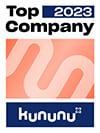The feature comparison - Shopware 5 vs Shopware 6

- The basics in a functional comparison
- The technical feature comparison between Shopware 5 and 6
- The conclusion of the Shopware comparison
Reading time 4 min
Shopware 6 is not an update, but requires a completely new store migration or setup, due to the different structure of the two store systems. After you have installed Shopware 6, it is possible to start the migration to your Shopware 5 with the SwagMigrationAssistant plugin. To do this, the SwagMigrarionConnector plugin must be installed in your Shopware 5 store.
Shopware tries to make the change as easy as possible for its users. If you are still wondering whether and when it makes sense to switch, our feature comparison may help you. Here is our functional comparison of the two store systems.
1. the basics in the functional comparison
| SHOPWARE 5 | SHOPWARE 6 |
|---|---|
| LICENSES | |
| Community, Professional, Professional Plus and Enterprise Version | Community, Rise, Evolve and Beyond Edition |
| PRICE | |
| Shopware 5 is currently only available as a Professional version for a one-time fee of €2,495 | The Community Edition is free of charge. For the Rise Edition you pay from 600 € per month, the prices for the Evolve and Beyond version are only available on request |
| SERVER (ONPREMIS) or SAAS/CLOUD | |
| Shopware 5 is currently only available in the Professional version as a server (onpremise) or self-hosted. | The Community Edition is server-based (self-hosted). Rise, Evolve and Beyond are available as SaaS, PaaS and self-hosted versions. |
| PLUGINS | |
| Plugin system - currently over 3500 extensions | Initially, there were just under 200 plugins for Shopware 6, but there are now significantly more. More and more plugins for Shopware 6 are added to the Shopware Store every week. |
| ADDRESS | |
| The salutation can be defined under Login / Registration | Salutations are already stored in Shopware, but can be managed, edited and added to |
| DOCUMENTS | |
| Receipts / Documents - invoices, delivery bills, cancellation invoices and credit notes can be created here, documents can be customized and PDFs can be created. | Settings > Shop > Documents - By default, Shopware provides templates for delivery bills, invoices, credit notes and cancellation invoices, which can be edited or deleted. New documents can also be created |
| IMPORT/EXPORT | |
| With the help of the import/export plugin, large amounts of data can be imported using CSV or XML. Import/export of articles, article images, prices, customers, stock and newsletter recipients | Content can be entered quickly and easily via imports and transferred to interfaces and analysis tools via exports. |
| CUSTOMER GROUPS | |
| Customer group function for classification (e.g. net prices for companies, gross prices for end consumers or discounts for customer groups) | Same functions, improved user interface |
| COUNTRIES | |
| Countries can be created, edited and deleted, country IDs must be inserted | Default country can be specified directly in the installer, extended country selection (250 registered countries), many tax rates already stored |
| LOGIN/REGISTRATION | |
| Configuration via login/registration under basic settings | Configuration for login/registration process of customers individually possible via settings, more compact |
| price units | |
| Individual sales/measurement units can be defined via the management of price units (Settings > Basic settings > Articles > Price units) | Individual units of measurement can be created for the individual products (Settings > Shop > Units of measurement) |
| NUMBER CIRCUMSTANCES | |
| When setting up the store, you can specify the number range, which can only consist of the digits 0-9. Article order numbers can be provided with a prefix | Number ranges can be created under Settings > Shop, prefix and suffix can be assigned, there is an extended mode |
| PRODUCTS | |
| Products & categories - create products and product images, overview, variants, ratings, properties, etc. | Variant management, products can be sorted by price for product properties, price management revised (no more rounding errors) |
| RULE BUILDER | |
| Own rules can only be implemented by a programmer. | Rule builder - rules and conditions (e.g. for prices and shipping) can be designed and implemented, sales processes can be adapted without changing the code |
| SEO | |
| SEO settings under SEO/Router settings (noindex, follow backlinks, error 404 target, rebuild index etc.), there is an SEO guide | SEO settings under Settings > Shop > SEO, definable structure for SEO URLS of product pages and categories, various SEO templates |
| SITEMAP | |
| Normal sitemap.xml and sitemap for mobile devices | Shopware generates a standard sitemap that is compressed and saved in the file system. This is structured in several files and can be generated in the background |
| INTERNATIONALIZATION | |
| Sub- and language stores for internationalization, multichannel through plugins | Internationalization - sub- and language stores can be created via channel logic, definable tax rates per country. |
| MASTER DATA | |
| You can store master data under the general store settings | Under Settings you can enter your master data, and you can also activate the store as a family-friendly store (meta tag "isFamilyFriendly" is added) |
| TAXES | |
| Vertical VAT calculation, horizontal method only possible with plugin | Vertical and horizontal tax calculation of VAT |
| SHIPPING | |
| Shipping & payment methods - individual shipping costs, risk management, standard shipping costs can be created | Settings > Shop > Shipping, create shipping method, availability rules, price matrix (by property and rule), sales channel assignable |
| CURRENCY | |
| New currencies can be defined in the Currencies area, default currency may not be deleted, ISO codes must be stored | Currencies can be created, edited and deleted under Settings > Shop |
| CART | |
| Shopping cart / item details - basic information can be created here | Settings > Shop > Shopping cart, basic functions for the shopping cart or product detail pages can be configured here. Either globally for all sales channels or for an individual sales channel |
| PAYMENT TYPES | |
| Payment methods can be added, edited, activated and deactivated via Settings > Payment methods. Various plugins can be used to integrate payment methods such as Paypal, Klarna and Amazon Pay | Payment methods can be added, edited, activated and deactivated via Settings > Shop > Payment methods. Various plugins can be used to integrate payment methods such as Paypal, Klarna and Amazon Pay, simpler operation |
| CATALOGS | |
| Catalogs possible through plugin | Catalogs as a central area for managing products, connection with manufacturer, properties, categories and ratings |
| ORDERS | |
| Management of orders - assigns a delivery to each order, separation not possible | Extension of the previous store settings - orders and deliveries can be separated |
| CUSTOMERS | |
| Editing your customer base via the customer module | Editing your customer base via the customer module, customer passwords can be changed from the administration |
| CONTENTS | |
| Content & media - store pages, blog, forms, media management | Media, worlds of experience, themes, CMS extension |
| MARKETING | |
| Marketing & shopping worlds - banners, vouchers, newsletters, premium articles, product exports, statistics, partner program | Marketing tool "Discounts and promotions" now also included in the Community Edition, newsletter recipients |
2. the technical function comparison between Shopware 5 and 6
| SHOPWARE 5 | SHOPWARE 6 |
|---|---|
| SYSTEM | |
| Front and back end are connected in the classic way and form a modular system | Flexible system thanks to API-first approach - frontend and backend can be located on different servers |
| BACKEND | |
| Backend runs on ExtJS framework - is not responsive. Mobile adaptation is therefore not possible | Backend is fully responsive and runs under the Vue.js framework of Javascript - therefore mobile adaptations are possible without any problems |
| FRONTEND | |
| Smarty is used for the template system | Frontend is based on framework Bootstrap and template engine Twig - easier customization of the storefront without prior knowledge |
| SALES CHANNELS | |
| Social media platforms and marketplaces can be connected via plugins and extensions | Sales channels can be controlled centrally API first approach allows social media platforms and marketplaces to be connected |
| MEDIA MANAGEMENT | |
| Simple media management via media manager, can be expanded with plugins | Advanced media management, automatic assignment to categories in the online store |
| PERFORMANCE | |
| Good performance thanks to MySQL and Elasticsearch | Reduced loading time thanks to technical innovations. Use of systems such as Symfony, Vue.js and Bootstrap 4 |
| SHOPPING WORLDS | |
| Shopping worlds - product presentation and landing pages easy to design with the page builder. Has limitations on different end devices - not responsive | Experience worlds - pre-designed blocks for content, can be moved by Navigator using drag & drop (modular principle) - responsive |
| B2B | |
| Shopware Enterprise Edition, some business features have to be implemented additionally | Beyond has the best B2B functions, but Evolve is also well suited for this purpose |
3. the conclusion of the Shopware comparison
Was ist dein Projekt? Wenn du uns darüber erzählen möchtest, rufen wir dich zurück!

Hello, my name is Meike. I take care of the EXWE back office and am responsible for our social media channels. All of our articles are meant to make your life easier and help you make decisions. Nevertheless, it can happen that something remains unclear, so: If you have questions about this article you can easily reach me at +49 231 93149827.
Shopware category on noindex, e.g. SALE category - customization in the backend, theme and settings within the categories.
Shopware Shop: Tipps für Italienische Staaten
Would you like to carry out a Shopware 6 migration? We'll show you what to look out for and how to make the move a success.





